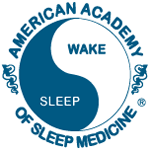 Caffeine is a unique substance. Unlike most other stimulants and commonly abused drugs you can’t seriously harm your health by overdoing it. At least, that’s the perception.
Caffeine is a unique substance. Unlike most other stimulants and commonly abused drugs you can’t seriously harm your health by overdoing it. At least, that’s the perception.In November, something happened to a British man that even the most seasoned caffeine fiend would have trouble grasping. He died of a caffeine overdose.
A medical autopsy revealed the 23-year-old had the consumed the caffeine equivalent of 70 energy drinks when he died. Rather than drinking coffee, soda or energy drinks, he decided to swallow spoonfuls of caffeine powder he purchased on the internet.
Previous case studies show consumption of around 10,000 mgs of caffeine can cause cardiac arrest leading to death.
To put things in perspective, a Starbucks venti (large) brewed black coffee contains only 415 mgs of caffeine. You would have to drink 24 large-sized coffees to reach the 10,000 mgs of caffeine that can alone cause a deadly overdose.
Past cases of such extreme caffeine consumption have led to severe symptoms including seizures, dangerously low blood pressure, severely abnormal heart rhythm and circulatory failure.
More often, deaths related to caffeine overconsumption are due to the combination of another substance, most commonly alcohol. Increasingly popular energy drinks containing alcohol have been linked to several high profile incidents, including the October 2010 hospitalization of nine students at a party at Central Washington University.
Case studies show that alcohol mixed with energy drinks leads to higher rates of intoxication. Authors explain that caffeine may alter the perception of alcohol intoxication. In other words, you feel less drunk than you actually are because of the caffeine, so you may continue to drink more.
When taken in moderation without other substances, caffeine is safe and can help alertness and mood. Caffeine can make it difficult to fall asleep and can reduce the total sleep time and time in deep sleep. Avoid consuming caffeine in the afternoon or evening to avoid disruptive effects on your sleep.







No comments:
Post a Comment